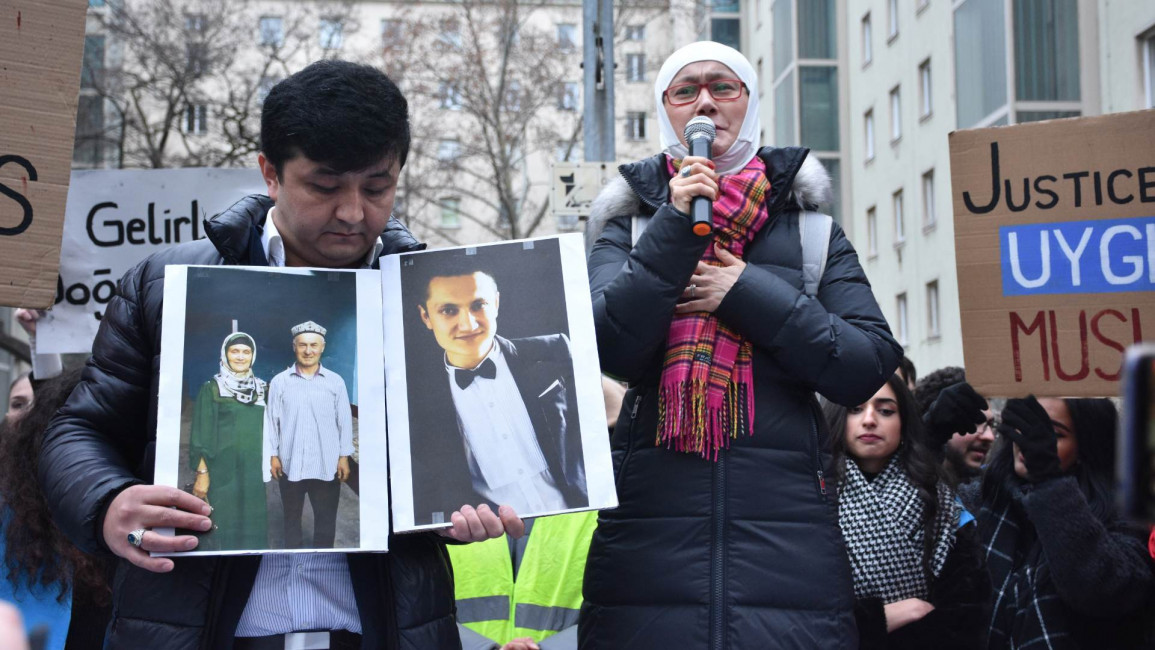Washington must fight for release of Uighur detained after US trip, Harvard coalition says
Washington must fight for release of Uighur detained after US trip, Harvard coalition says
Ekpar Asat was detained after taking part in a State Department-linked exchange programme in the US.
3 min read
At least a million Uighurs are thought to be held in Chinese detainment camps [Getty]
Washington must do more to pressure China to release a young Uighur man who was detained after a trip to the US, a coalition of student organisations has urged.
Ekpar Asat disappeared in 2016 after taking part in a exchange programme to the United States. Asat visited his sister, a student at Harvard, while in the US.
The young entrepeneur had promised to return to the US with his parents in a matter of months so they could see his sister, Rayhan, become the prestigious university's first ever Uighur graduate.
But Rayhan suddenly lost all contact with her brother after he returned to the northwestern province of Xinjiang.
"I know that he arrived home safely… but suddenly my parents cancelled their visit to the US for my graduation, and I was like 'What's happening', but they wouldn't tell me … None of it added up. He was nowhere to be found," she told The Guardian.
Rayhan learned in January last year that her brother had been sentenced to 15 years in prison for "inciting ethnic hatred and ethnic discrimination" after being swept up into China's mass detention system in Xinjiang.
More than 60 student organisations part of Harvard signed an open letter this week urging the State Department to push harder for the release of Asat, an alumnus of the International Visitors Leadership Programme.
|
|
The campaign began after his sister addressed a Harvard Law conference last year, publicly telling the story of Asat's disappearance for the first time.
Members of Congress also called for Asat's release in a 2019 letter, pointing to his "dedication to philanthropy, and continuous effort in cultivating ethnic harmony, and greater understanding between the Han and other ethnic groups in Xinjiang".
The State Department told The Guardian it has no evidence that Asat's visit to the US and his subsequent detention are related, but reports indicate travel outside of China or communication with relatives abroad often see Uighur Muslims pulled into the Xinjiang detention network.
Rayhan believes the two are connected, and hopes that the Harvard student organisations' letter will push other universities to advocate for Asat and others like him.
Harvard and other elite universities in the US have avoided taking a stand against China's repression of Muslim minorities due to the fact they are the institution of choice for the children of the Chinese elite, Rayhan said.
"You can't remain bystanders to genocide when your own alumna is suffering," she added.
At least a million Muslim minoritis, most of them Uighurs, are though to be held in detention centers in Xinjiang. China is accused of subjecting them to indoctrination, forced labour, forced birth control and torture, as well as a mass surveillance programme outside of the camps.
Beijing rejects those allegations, claiming that the detention facilities are instead re-education centers aimed at steering Muslim minorities away from Islamist extremism and separatism.
Follow us on Facebook, Twitter and Instagram to stay connected



